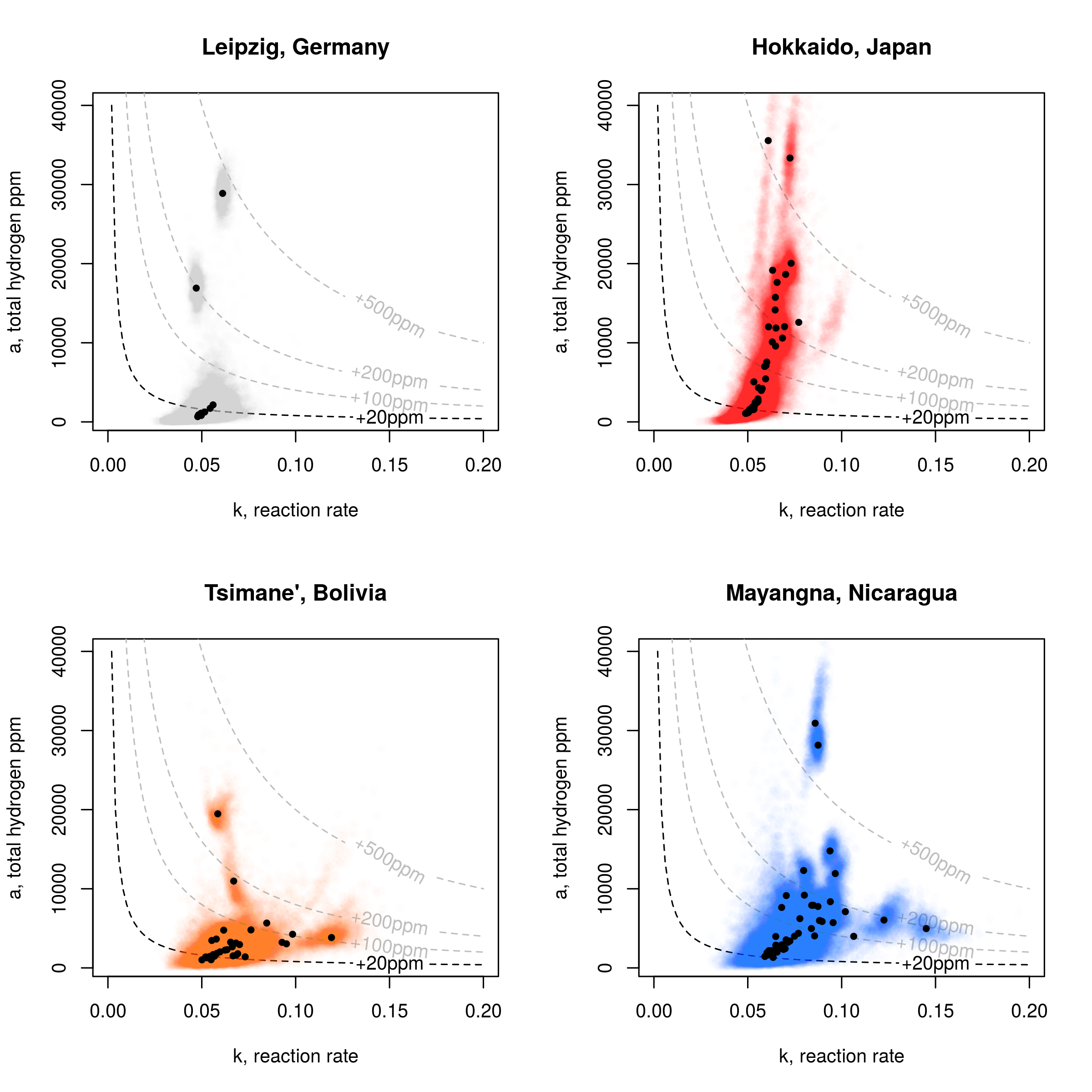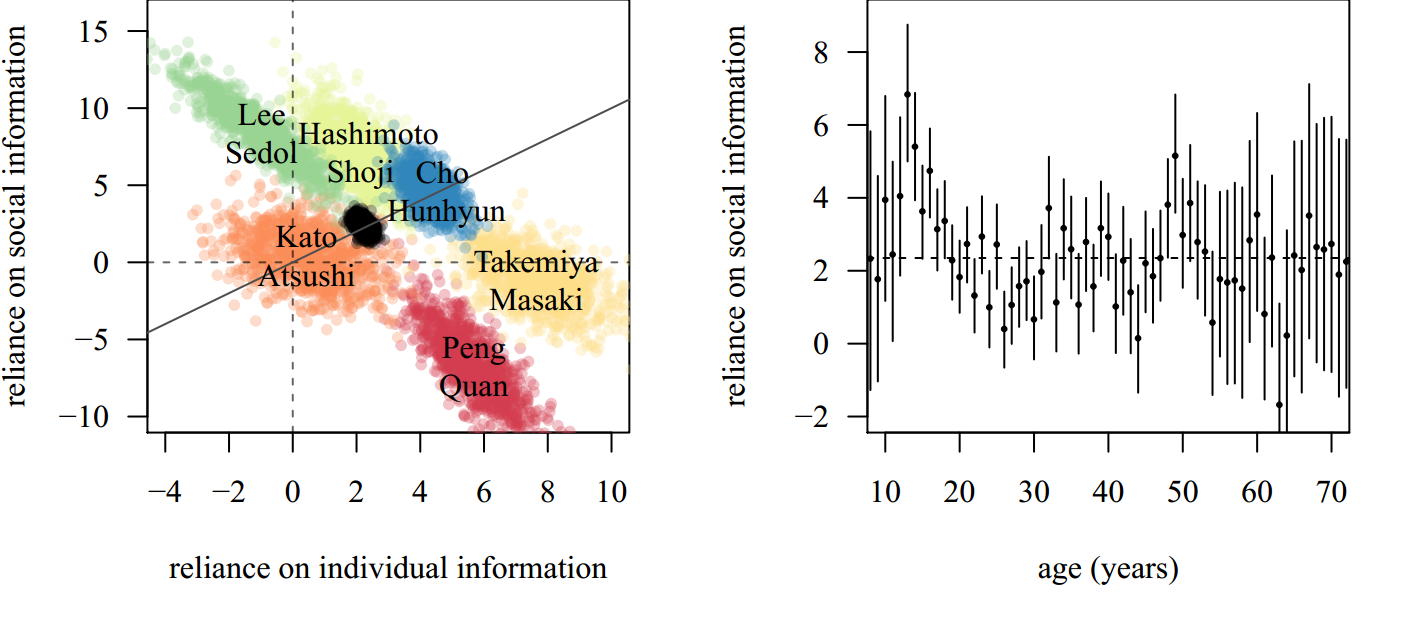reseach precis organized by topic; see my list of publications
code for most figures is also on my github page
1. Dynamics of Cultural Diversity
Understanding cultural change over time is the central focus for the field of cultural evolution. In 2014, I contributed a large-scale quantitative analysis of the East Asian board game of Go.

recent evolution in Go opening strategy
Here we track specific opening variants as traits that change in frequency over time as players adopt innovations in play styles. Our major focus was on strategic social learning, in which individuals selectively draw upon information available from others. We developed a general method for measuring this, both by player and across the life course:
professional players follow different learning strategies, as do younger vs older players
Together with N.-Han Tran, I am working on a follow-up analysis comparing the development of skill in both Go and Chess.
I am also working with Timothy Waring and N.-Han Tran on the cognitive constraints in the kolam art form of South India. Here, we are focusing on the cognitive and social constraints on artistic patterns, accessible through the concept of a tradeoff.
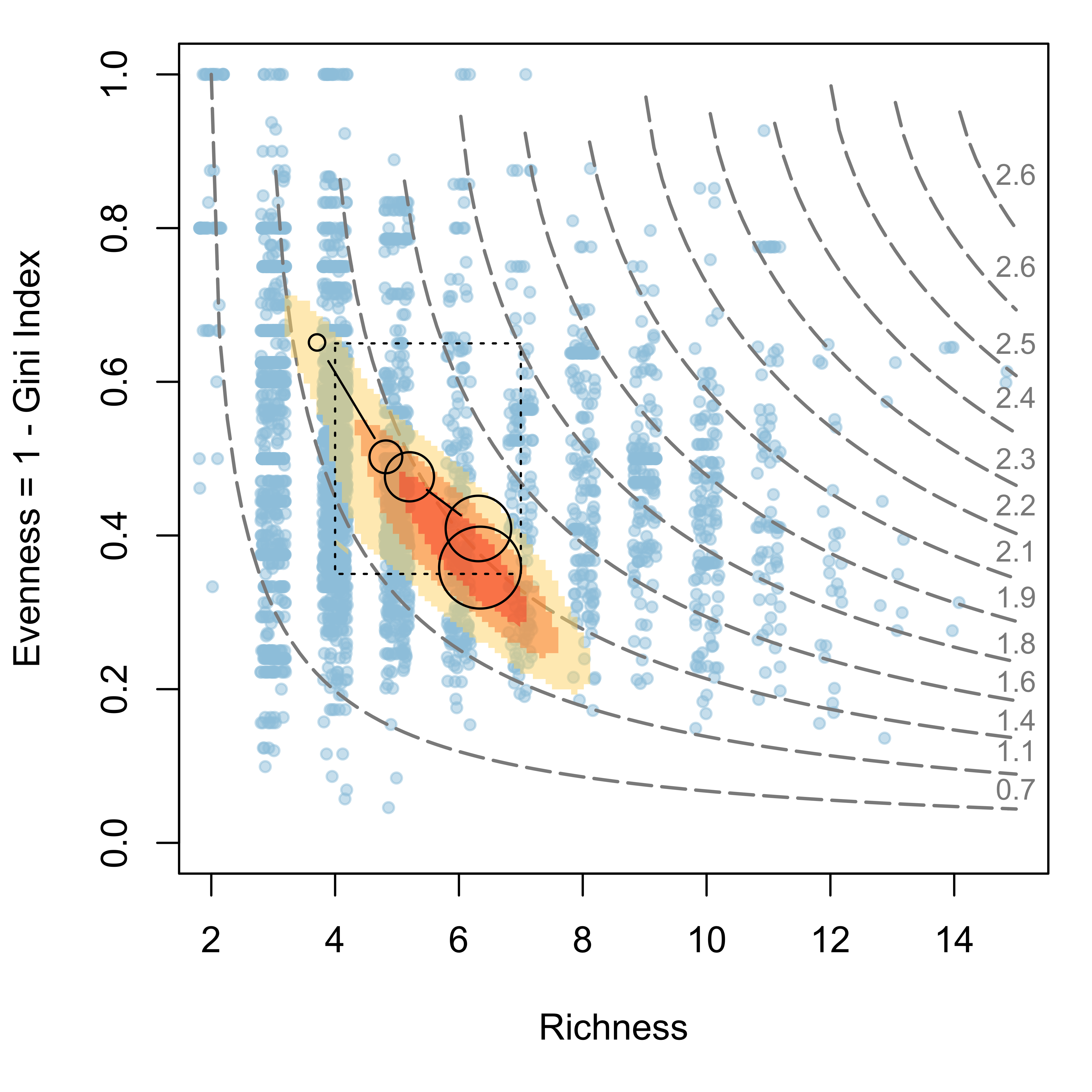
Together with Joe Henrich and many others, I’ve also contributed to the macro-historical debate on the emergence of moralizing gods worldwide.
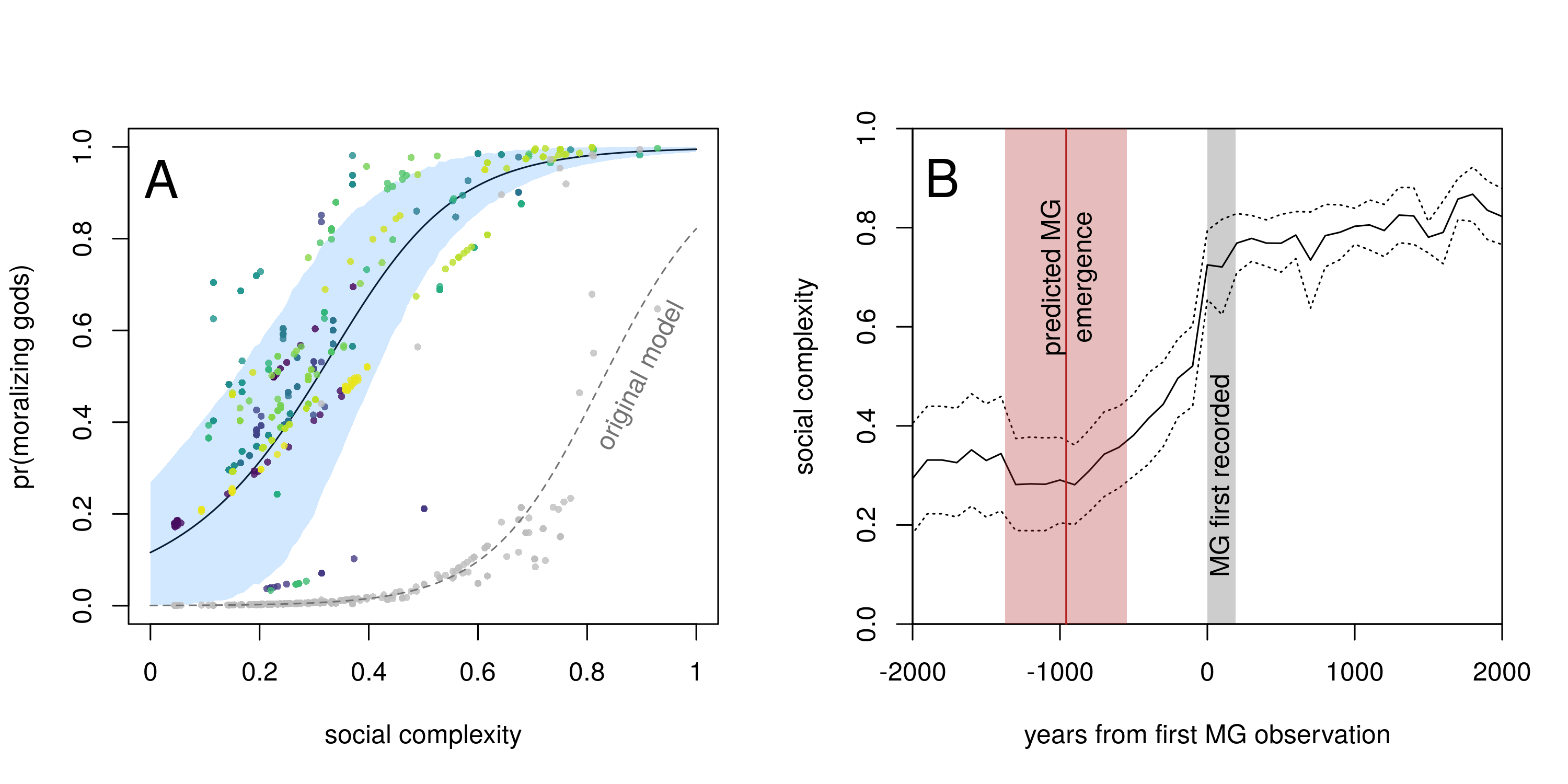
models of the timing of moralizng gods depend critically on our assumptions about unknown historical eras
representative papers:
- Strategic Social Learning and the Population Dynamics of Human Behavior: The Game of Go, with Richard McElreath and Calvin Thigpen
- Entropic trade-offs in artistic design: A case study of Tamil kolam, with N.-Han Tran, Silke Atmaca, Timothy Waring
- Differential skill aquisition by age in two knowledge-intensive strategy games, with N.-Han Tran
- Treatment of missing data determines conclusions regarding moralizing gods, with Joseph Henrich, Benjamin Purzycki, et al.
2. Demographic Models of Cultural Evolution
The study of cultural evolution has been enhanced by mathematical models of demography. With Ryan Baldini, I wrote a derivation of Price’s theorem that can be used to separate out cultural trends.
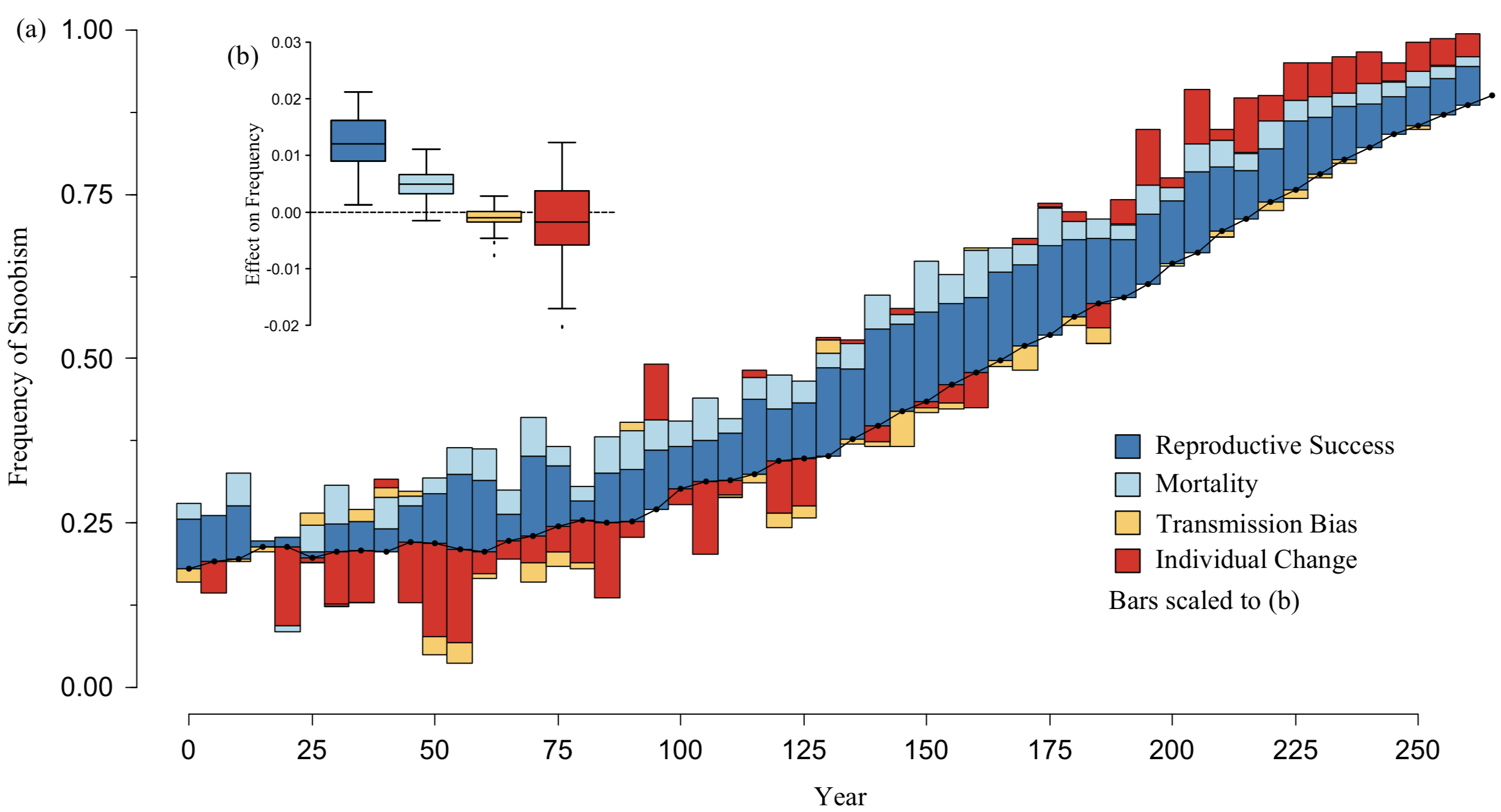
agent-based simulations show cultural change due to demographic forcing
I’m currently working with the Tsimane' people of Bolivia on how these methods can be applied to studying the spread of bilingualism and language change, together with my students Anja Becker and Riana Minocher.
I also study the impact of cultural institutions on demography, such as an analysis with Siobhán Mattison of the Mosuo ethnic minority in Southwestern China.
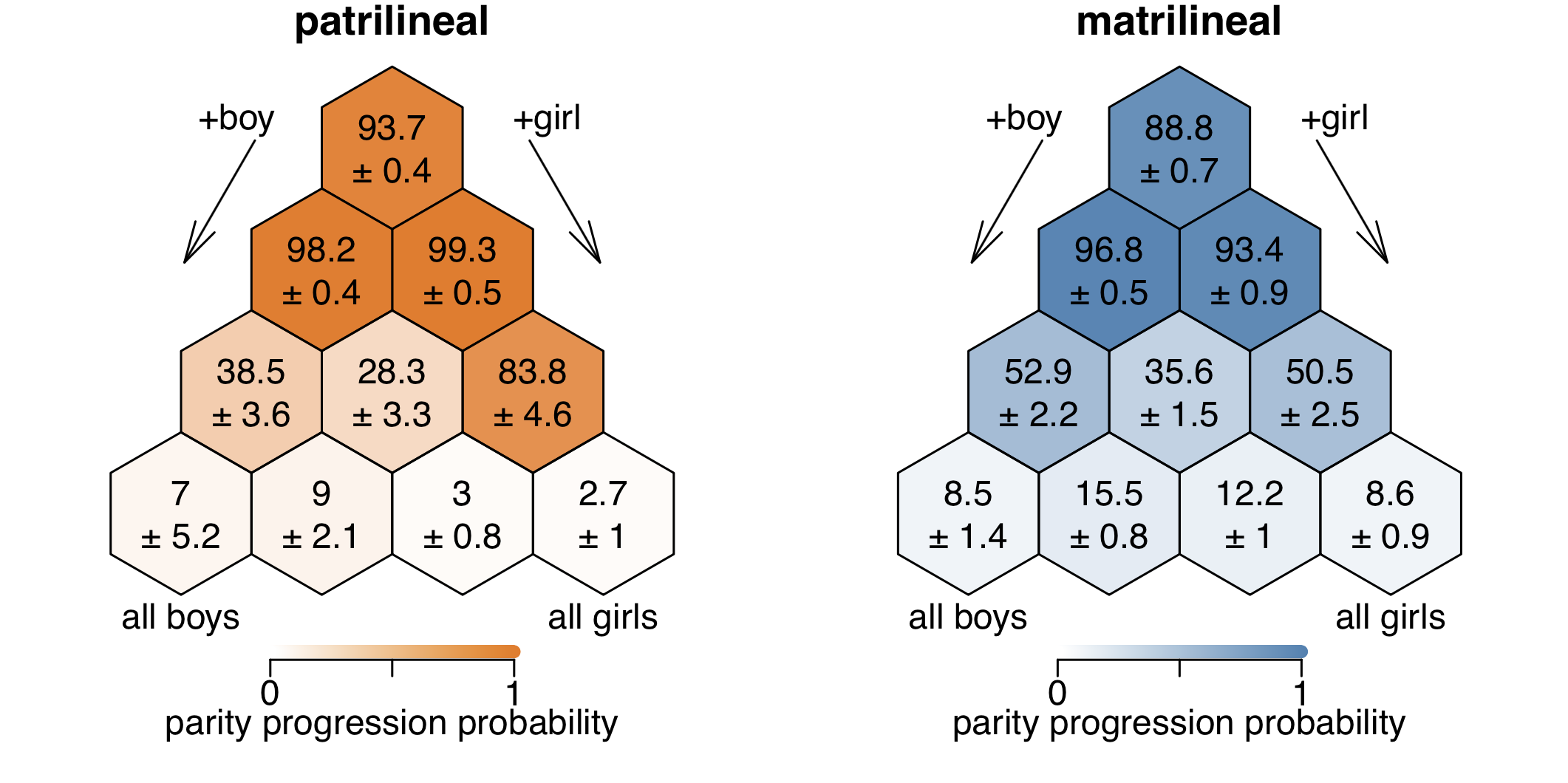
child number and sex determines subsequent reproduction in two lineage systems
Representative papers:
- Evolutionary Decomposition and the Mechanisms of Cultural Change, with Ryan Baldini
- Offspring sex preferences among patrilineal and matrilineal Mosuo in Southwest China revealed by differences in parity progression, with Siobhán Mattison, et al.
3. Market Impacts on Knowledge, Wealth and Health
Accultural and market-integration are dominant themes of fieldwork for many anthropologists. Several papers on the impacts of wealth on reproductive success and on children’s wealth across the world.
Since 2012 I have worked with the Tsimane' people. Recently I participated in a large-scale study of Tsimane' cardiovascular health, led by Hillard Kaplan and Michael Gurven, finding that this Amerindian group has the lowest rates of aetherosclerosis and heart disease on record, concomitant with a physically demanding, calorie restricted lifestyle in a high-pathogen environment.
Since 2013 I have been studying diffusion of gasoline motors, which has transformed life for communities along the Maniqui river.
This fieldsite has also contributed to the ENDOW social network project, led by Jeremy Koster and Elenor Power.
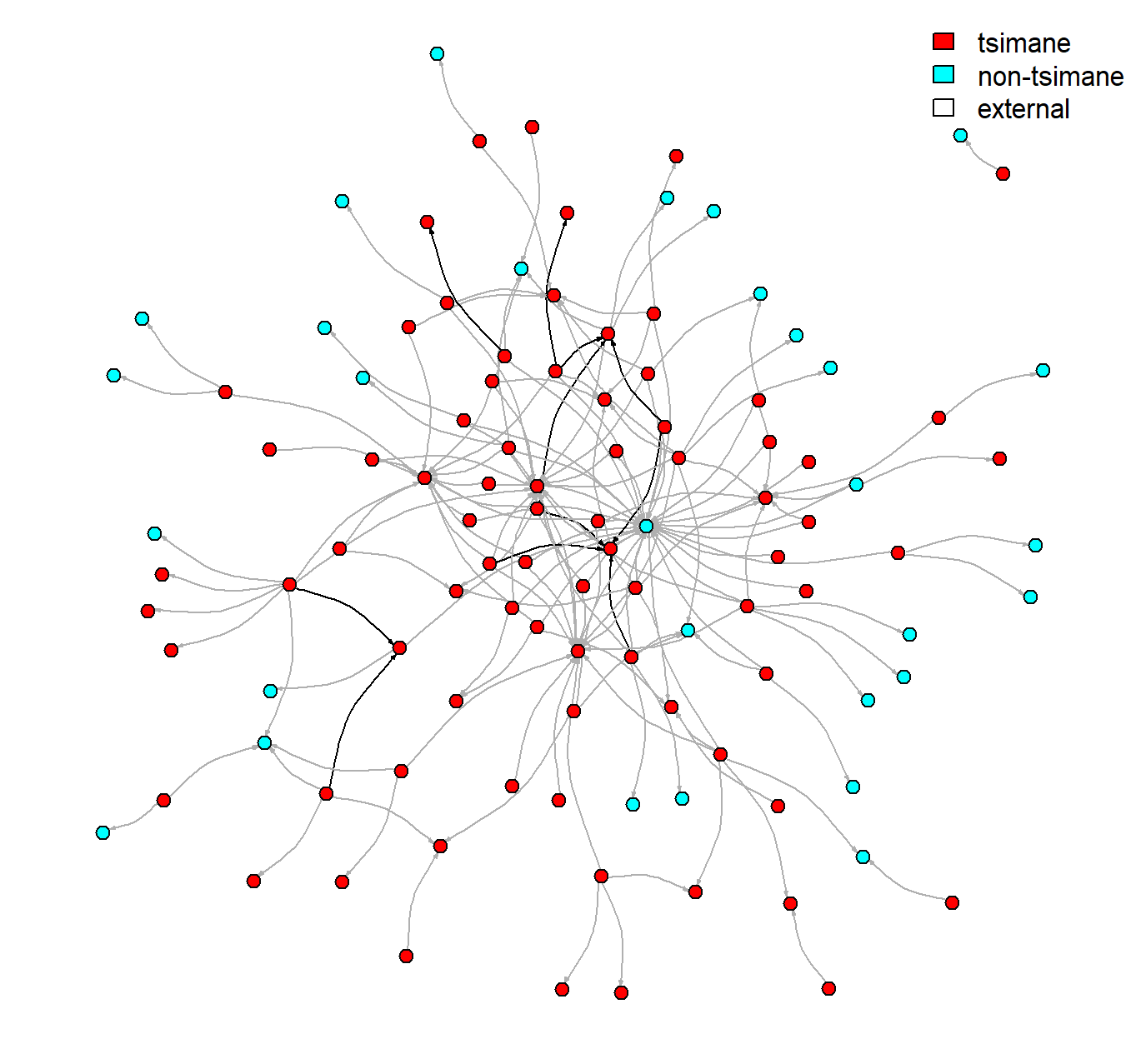
a network of political contacts in an ENDOW community in Bolivia
Representative papers:
- Coronary atherosclerosis in indigenous South American Tsimane: a cross-sectional cohort study, with Hillard Kaplan, Michael Gurven, et al.
- Differences between sons and daughters in the intergenerational transmission of wealth, with Monique Borgerhoff Mulder, et al.
- Reciprocal exchange patterned by market forces helps explain cooperation in a small-scale society, with Adrian Jaeggi, et al.
4. Open Science & Data Provenance
The use of large-scale databases offers exciting opportunities, but heightens the question of provenance. The Data Provenance Research Group at MPI-EVA focuses on how to improve this transparently, as part of the larger goals of open science.
Led by Riana Minocher, we have recently completed a massive survey of the social learning literature in evolutionary sciences, finding that only 3 in 10 papers have recoverable data by request, and 1 in 5 results do not reproduce given data available.
{{tweet 1063792960377053185}}
Representative papers:
- The Tsimane Health and Life History Project: Integrating anthropology and biomedicine, with Michael Gurven, Hillard Kaplan, et al.
- Reproducibility improves exponentially over 63 years of social learning research, with Riana Minocher, Richard McElreath, et al.
- Reproducible Research as our New Default
5. Coevolution of dairying & adult lactose tolerance
Recently I have begun organizing the collection of hydrogen-breath test data at multiple department fieldsites to better understand the pattern of adult lactase persistence.
